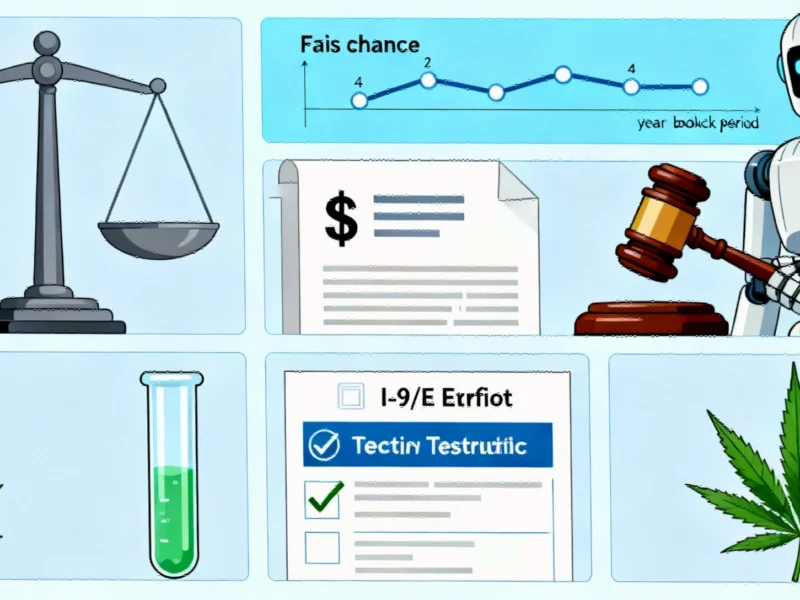Expanding Fair Chance Hiring Protections
Employers across multiple jurisdictions are facing tightened restrictions on how they evaluate candidates with criminal histories, according to employment law analysts. Sources indicate that Philadelphia will implement new lookback periods beginning January 6, 2026, limiting misdemeanor convictions to a four-year window and excluding summary offenses entirely. The amended ordinance reportedly requires employers to provide written notice before taking adverse action based on criminal records and establishes a rebuttable presumption of retaliation if action follows within 90 days of a candidate asserting their rights.
Washington state’s amended law, effective July 2026 for larger employers, transforms both timing and substance of criminal history evaluations, the report states. Employers must now wait until after a conditional offer to conduct background checks and cannot consider arrests or juvenile convictions. Meanwhile, Minneapolis has added “justice-impacted status” as a protected class, prohibiting discrimination based on arrests, charges, convictions, probation, and incarceration regardless of outcome.
In California, enforcement of the Fair Chance Act has intensified, with the Civil Rights Department adopting an applicant-favorable approach that scrutinizes both process and outcome of hiring decisions. Analysts suggest employers must ensure individualized assessments are well-reasoned and documented to avoid liability.
Pay Transparency Mandates Spread Nationwide
The push for salary disclosure requirements continues to gain momentum, with several states and municipalities implementing new regulations. According to reports, Massachusetts employers with 25 or more employees must disclose salary ranges in all job postings, promotions, and internal transfers starting October 29, 2025. Those with 100+ employees also face demographic pay data reporting obligations, with penalties reaching $25,000 per violation.
Cleveland’s new ordinance, effective October 27, 2025, prohibits salary history inquiries and mandates salary ranges in all job postings, covering part-time and temporary roles. Vermont now requires employers with at least five employees to disclose good-faith pay ranges in all job postings, while Washington state has refined its Equal Pay and Opportunities Act with new compliance provisions.
Delaware joins the trend with a new pay transparency law taking effect in 2027, requiring employers with 26+ employees to include salary ranges and benefit descriptions in job postings. The report states that employers should begin aligning pay bands and documentation practices in preparation for these widespread industry developments.
Cannabis Testing and Medical Use Protections
Workplace cannabis policies continue to evolve, with Texas expanding its Compassionate-Use Program effective September 1, 2025, while maintaining employer rights to enforce zero-tolerance policies. However, sources indicate that Minnesota’s new protections for registered medical cannabis patients require employers to provide 14 days’ written notice before taking adverse action based on THC-positive drug tests.
Iowa has clarified procedures for electronic drug test notifications and safety-sensitive role designations. Employers should review job descriptions and internal documentation to support these classifications amid changing market trends in workplace drug testing.
AI Regulation and Employment Data Privacy
The regulation of artificial intelligence in employment decisions is accelerating, according to legal analysts. Texas’ TRAIGA law, effective January 1, 2026, prohibits intentional discrimination via AI systems but stops short of requiring audits or assessments. Meanwhile, California’s Civil Rights Department has finalized regulations confirming employer liability for discriminatory outcomes caused by AI, even when third-party vendors are involved.
In a significant development, California Governor Newsom vetoed SB 7, which would have required employers to notify workers when AI is used in employment decisions. The Governor criticized the bill as overly broad, leaving employers to rely on the CRD’s Automated Decision Systems regulations as the primary guidance. Colorado’s AI Act implementation has been delayed to June 30, 2026, giving employers more time to prepare for mandatory risk assessments and algorithmic disclosures.
Data privacy enforcement has also intensified, with California’s Privacy Protection Agency fining a nationwide retailer $1.35 million for violating the CCPA through improper collection of job applicant data. Maryland’s Online Data Privacy Act takes effect October 1, 2025, imposing strict requirements around data minimization and consumer rights for marketing data, reflecting broader related innovations in privacy regulation.
I-9 and E-Verify Procedure Updates
Employment verification processes are undergoing significant changes, according to immigration compliance experts. Following a federal government shutdown, USCIS restored access to E-Verify, requiring employers to submit backlogged cases by October 14. Temporary Protected Status designations for several countries remain in flux due to ongoing litigation, creating verification challenges for employers.
Under H.R. 1, effective July 22, 2025, Employment Authorization Documents tied to parole and TPS will be valid for 365 days or until status expires. E-Verify’s Status Change Report now includes a “Revoked Document Number” field, requiring employers to compare this number to the EAD used on Form I-9. The Department of Homeland Security continues to explore a “continuous vetting” program targeting visa holders, which could lead to sudden revocations and increased scrutiny during international travel.
Compliance Strategy for Modern Employers
The third quarter of 2025 has revealed that compliance must be proactive, documented, and defensible, according to employment law specialists. Legal obligations now extend beyond the “what” and into the “how” and “why” behind employment decisions. Analysts suggest employers should conduct comprehensive compliance audits, update documentation and training programs, implement technological solutions for tracking requirements, and establish clear accountability structures.
Employment law experts emphasize that viewing compliance as a strategic asset, rather than a box-checking exercise, will better position employers to reduce risk, increase fairness, and meet the evolving demands of the modern workforce. The convergence of these recent technology and regulatory developments requires a coordinated approach to workforce management that integrates legal requirements into core business operations.
This article aggregates information from publicly available sources. All trademarks and copyrights belong to their respective owners.



